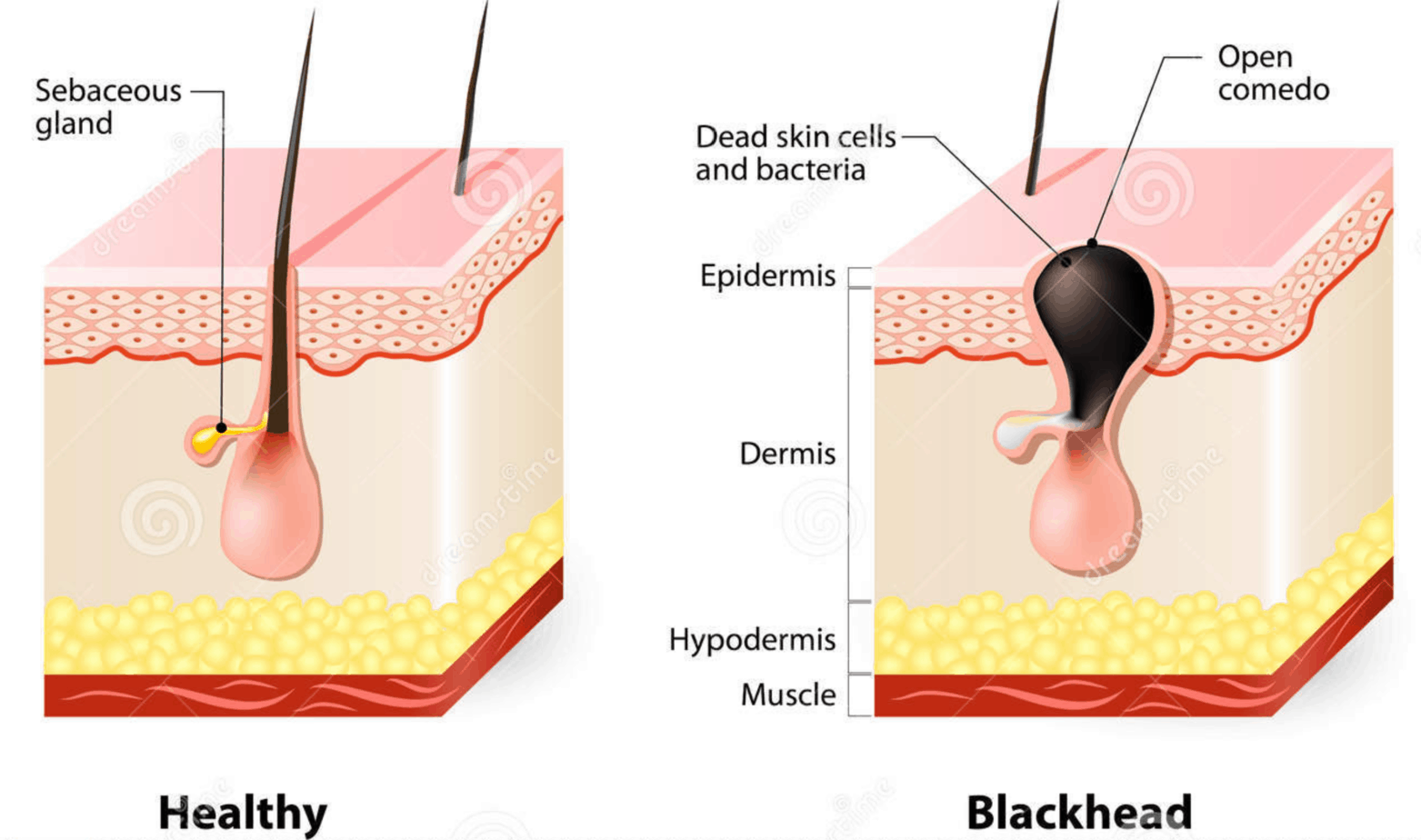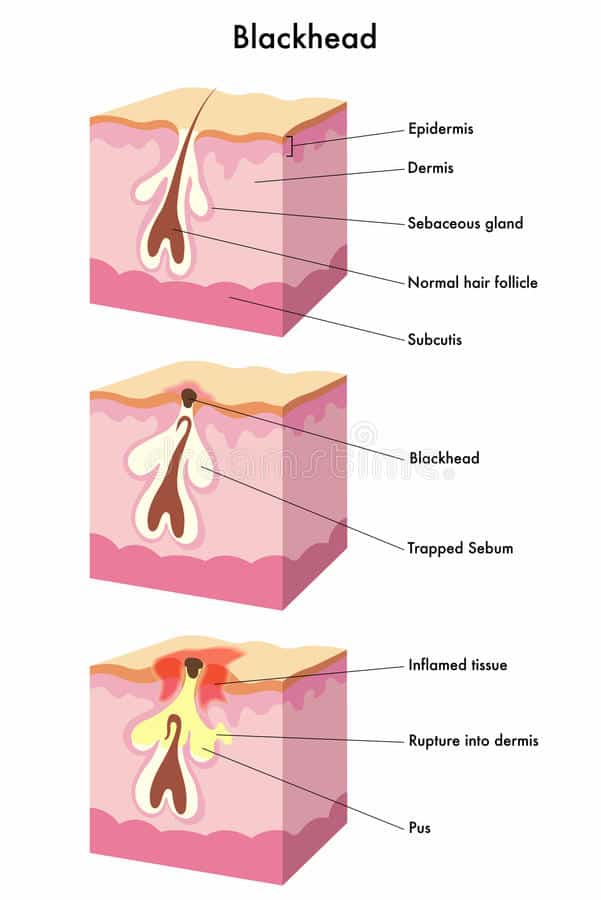Have questions about blackheads and want to understand them better? Well, we’ve got you covered! This skin condition is under our beauty microscope this week, so scroll down to read what exactly causes blackheads, how they can be treated and removed, and what you should and shouldn’t do in regards to them:

Blackheads are a part of life. As we grow older, the tiny pores of childhood get bigger because of hormonal changes. They are small bumps that appear on the skin as dark spots, mostly on the face and neck. They can be bothersome but don’t fear, they can be managed!
CAUSES
Blackheads are a result of age and hormonal changes when the body produces too much oil that gets clogged in pores. It’s most common during puberty, when the change in “hormone levels trigger a spike in sebum production.” Some hormonal changes related to menstruation, pregnancy, and the use of birth control pills can also increase the chances of blackheads in women. Environmental factors such as sweating and high humidity can trigger the release of blackheads. Health conditions also play a vital role, such as stress and Polycystic Ovarian Syndrome (PCOS) in the appearance of blackheads.
SYMPTOMS
Because of their dark color, they are easy to spot on the skin. They are non-inflammatory, which means they are not infected and they won’t cause any pain or discomfort to the skin, unlike pimples sometimes do.

TREATMENTS
Over The Counter Medications (OTC)
OTC medications are easily accessible at drugstores without the need for a prescription. They are available in a cream, gel or pad form and are put directly on to your skin. The ingredients consist of salicylic acid, benzoyl peroxide, and resorcinol, which kill the bacteria and dry the excess oil.
Prescription Medications
If OTC medicines don’t seem to treat blackheads, the doctor may suggest stronger prescription medications. These medications contain Vitamin A that prevents the pores from forming.
Removal Of Blackheads
There are several treatments that can be done to remove the appearance of blackheads on the skin. Some of the more popular ones are manual removal, microdermabrasion, chemical peel, or laser therapy.
A manual removal is done by a trained dermatologist or a skincare professional by using an extractor to remove the plug that is causing the blackhead to form.
During a microdermabrasion procedure, a doctor uses a special tool that has a rough surface to “sand the top layers of the skin.” Sanding the skin removes the clogs that cause the blackheads. This procedure is mildly invasive and is made to even out the skin and texture, as well as minimise the appearance of fine lines, wrinkles, age spots and other skin-related concerns.
Another way to get rid of the dead skin cells that contribute to blackheads is by doing a chemical peel. During a peel, a strong chemical solution is applied to the skin. Over a period of time, the top layers of the skin start to peel off, making the skin smoother.
Lastly, laser therapy is used to decrease the oil or kill the bacteria by using beams of light. This will not remove the blackhead completely, but it will decrease the appearance of them.

DO’S
Exfoliate Regularly
Make sure not to miss this step in your skin care routine! Apply an exfoliant to help remove the dirt, leftover makeup, and dead skin cells that cleansing and washing your face might miss. When you exfoliate, make sure to cleanse and wash your face smoothly to avoid harsh scrubbing.
Treat Topically
Treating topically refers to using products that contain ingredients like salicylic acid or benzoyl peroxide because they can be used to treat multiple skin concerns. They are effective in killing the bacteria on the skin, and they also reduce the oil in areas that are prone to blackheads.
Use A Retinoid
Using products that contain Vitamin A is highly effective for clearing up the skin. They unplug the existing blackheads, and they act as a preventative care to lower the formation of future lesions
Don’t
Never Squeeze The Spot
Contrary to what people believe, squeezing or scrubbing blackheads can make them worse – avoid doing this at all costs! Although it is sometimes tempting, it can leave scarring which isn’t good for the skin.
Don’t Use A Dirty Tool
Whether you have sensitive skin or not, it’s critical to clean the blackhead removing tool. Sanitization is key because it might lead to an infection, which is something you want to steer clear of! Therefore, make sure to wash your tool with lukewarm water before and after using it.







What do you think?
You must be logged in to post a comment.